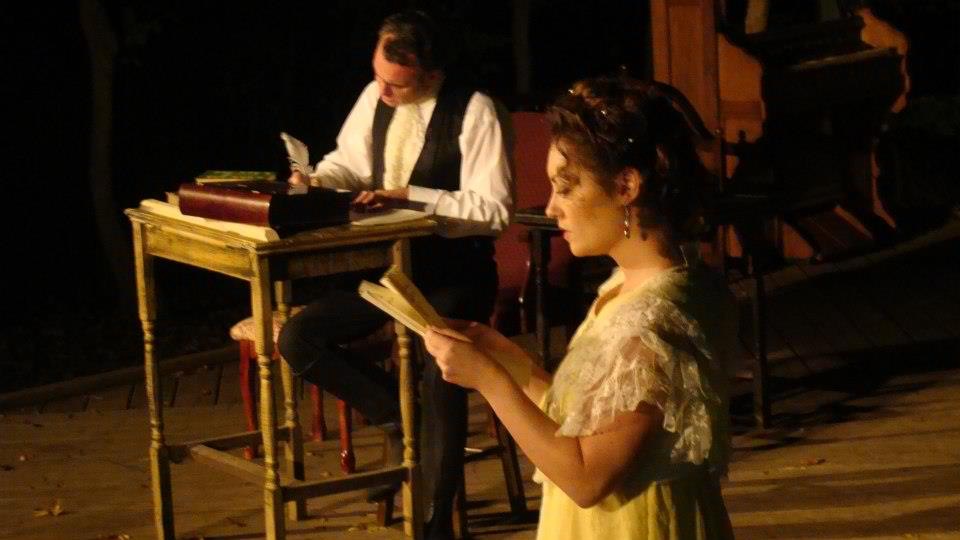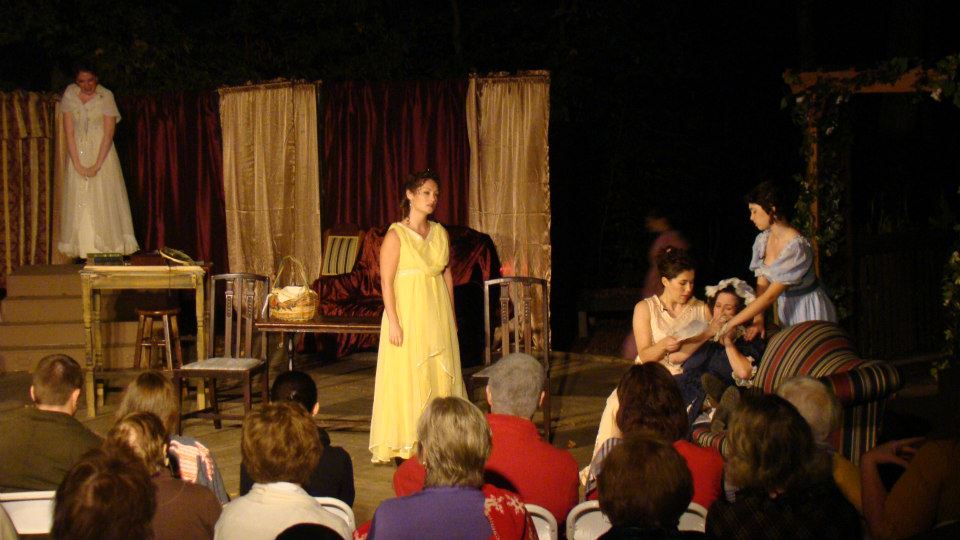New beginnings spark for Workshop Theatre as they open their 2014-2015 season with the jukebox musical Five Guys Named Moe. The biggest change the company is facing is their new performance location in The Market Space at 701 Whaley Street.
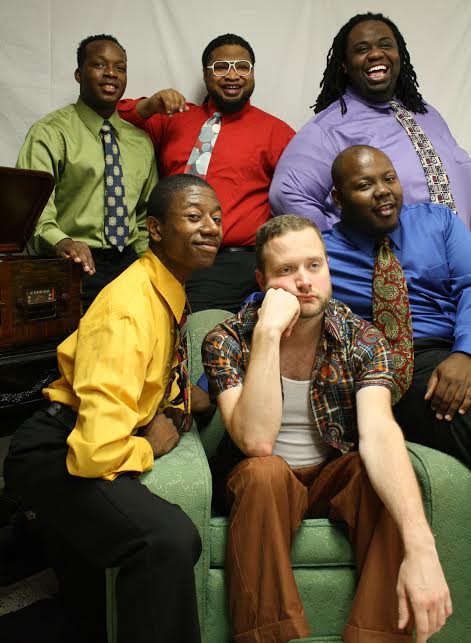
"Five Guys Named Moe is the first production in this new space," says the show's director, Lou Boeschen. "No precedents have been set indicating how we should transform this completely empty space into an intimate theatre. This can be both good and bad. You are open to think outside the box and set the stage any way you like, but you don't have the experiences of a prior production to show what works or doesn't work in the space.”
This new space opens up vast opportunities for inventive, fresh new staging opportunities, which add a new level of artistry that audiences may not have seen at Workshop before. Each director is able to completely create his or her desired environment, allowing a lot of liberties with blocking and staging.
“When I first started to visualize Five Guys Named Moe, it was difficult not to see it in the familiar setting of Craft Auditorium at the corner of Bull and Gervais Streets," said Boeschen. "After meeting with set designer, Lee Shepherd, I was able to quickly adjust my thinking. I came to Lee with several ideas about how I wanted the stage area to be arranged with different levels and a dedicated place for the band. He took those ideas and, using his expertise for building a set off-site and moving it into a performance space, came up with a fantastic design.”
Not only will the new space be created to fit the musical and the vision that Boeschen has, but it also must accommodate a live band, which is not always the case with every theatre. “There will be a live band led by our musical director, Roland Haynes, Jr. He's assembled a quintet of talented musicians, a few of whom he plays jazz gigs with regularly," explained Boeschen. "The music is the core of this piece, a character in a sense. It is important to me that the band be a part of the action on stage. From their bandstand on the right side of the stage area, the cast members are able to interact with Roland and the other musicians.”
The cast has been rehearsing in the Workshop Theatre rehearsal space on Elmwood Avenue, and will be able to move into the theatre just a short four days before they open.
“Throughout the rehearsal process, I referred to the ground plan design often when explaining blocking and spacing to the cast," Boeschen recalls. "The cast is using some of the smaller set pieces already in the rehearsal space, which is not much smaller than the area that will be set as a stage at 701 Whaley. Joy Alexander, the choreographer, has worked hard to create perfect choreography for this style of show, but she has also kept it very flexible. The first night on the set, Sunday, will be used for blocking and adjusting choreography spacing. I am anticipating needing to make a few adjustments, but nothing major,” said Boeschen.
Along with all the adjustments and accommodations that the theatre faces as they debut in their new performance space, Boeschen will also debut as a director.
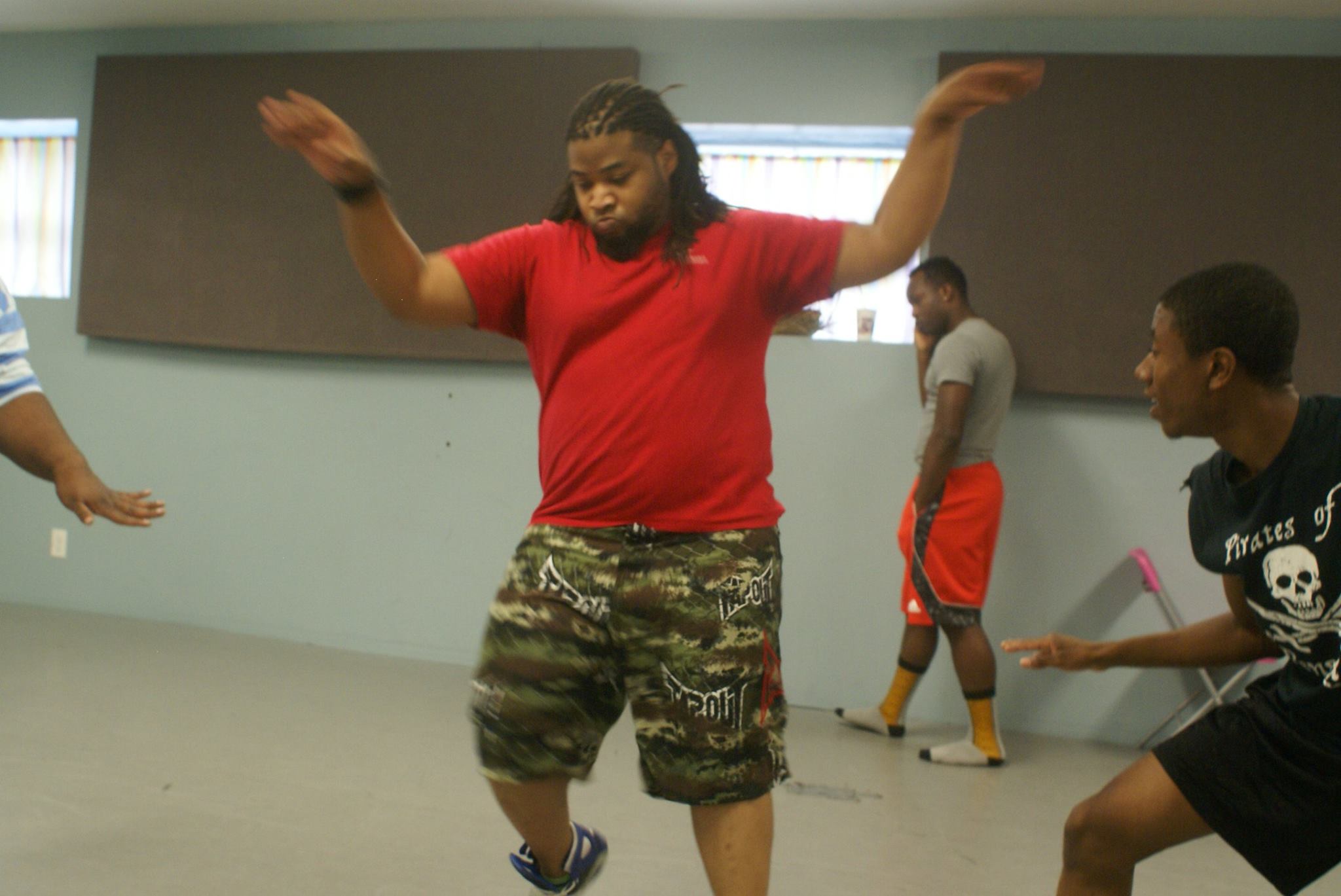 “I felt it was time to get my feet wet and direct a show. I didn't want to tackle a huge musical production my first time at the helm, however, so a small revue-style show seemed like a good starting point. I submitted my interest to direct and was chosen by the play selection committee at Workshop to direct Five Guys Named Moe. I love Louis Jordan's music, and the story written by Clarke Peters that connects the songs is genuine,” said Boeschen.
“I felt it was time to get my feet wet and direct a show. I didn't want to tackle a huge musical production my first time at the helm, however, so a small revue-style show seemed like a good starting point. I submitted my interest to direct and was chosen by the play selection committee at Workshop to direct Five Guys Named Moe. I love Louis Jordan's music, and the story written by Clarke Peters that connects the songs is genuine,” said Boeschen.
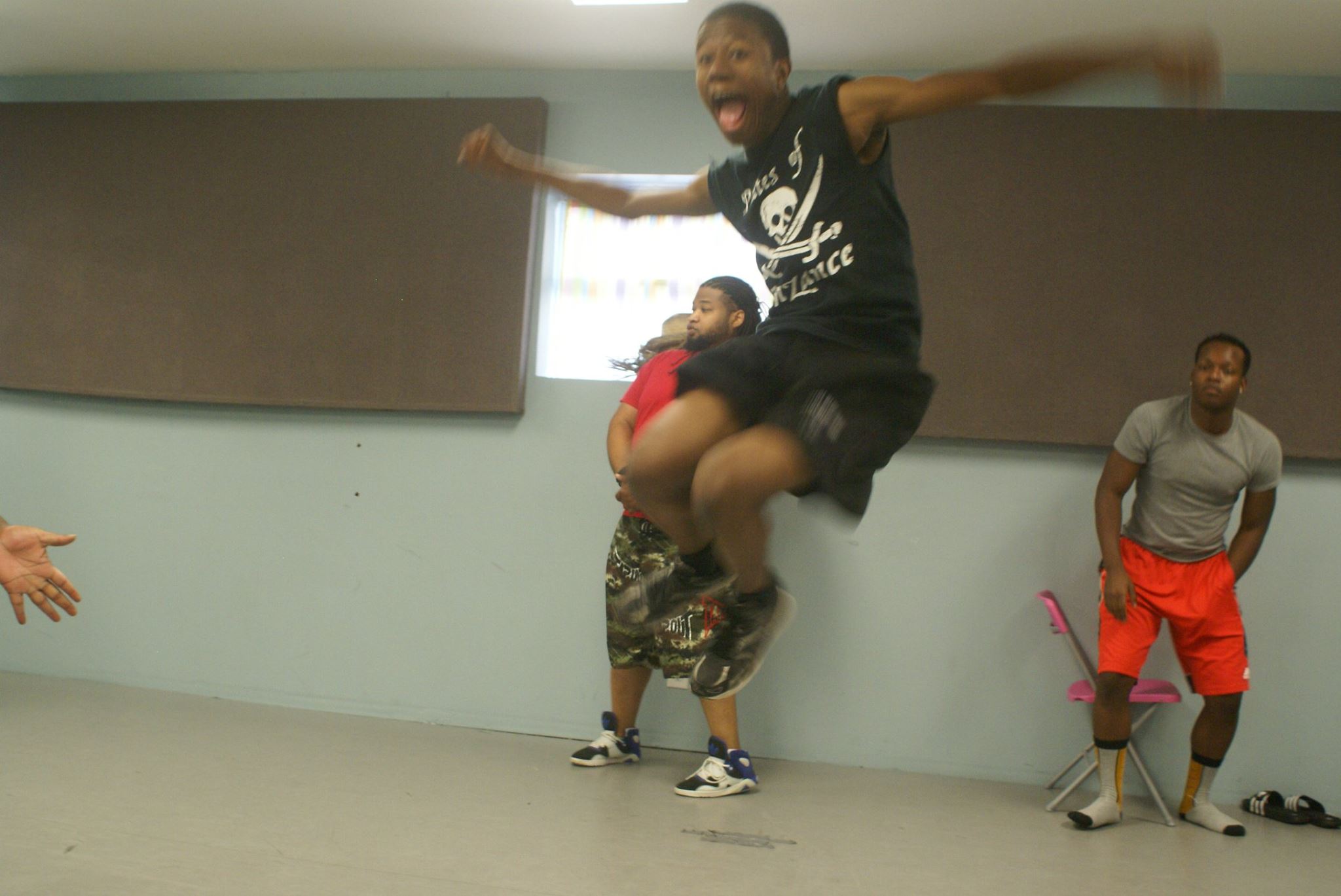 Although Workshop has produced Five Guys Named Moe before, this new cast brings a fresh take on the musical. “There are a couple of names and faces in the cast that audiences will recognize from previous productions at Workshop, Town Theatre, Trustus and even Opera USC, but we have some newcomers as well. The guys all have rich musical backgrounds, which is a blessing for a show like Five Guys Named Moe. I've enjoyed working with both the seasoned performers and the first-timers, as they each bring a distinct energy and eagerness to the process,” Boeschen said.
Although Workshop has produced Five Guys Named Moe before, this new cast brings a fresh take on the musical. “There are a couple of names and faces in the cast that audiences will recognize from previous productions at Workshop, Town Theatre, Trustus and even Opera USC, but we have some newcomers as well. The guys all have rich musical backgrounds, which is a blessing for a show like Five Guys Named Moe. I've enjoyed working with both the seasoned performers and the first-timers, as they each bring a distinct energy and eagerness to the process,” Boeschen said.
Five Guys Named Moe runs September 18-21 in The Market Space at 701 Whaley. Regular priced adult tickets are $22, senior and active military tickets are $20, student tickets are $16, and children (12 & under) are $12. Come out for a new experience at a new location with an old friend, Workshop Theatre.
~ Haley Sprankle, Jasper intern
From press material:
The Story: His woman left him, he’s broke, and it’s almost five o’clock in the mornin’. But don’t be worryin’ ’bout our hero, Nomax. Out of Nomax’s ’30s-style radio pop Five Guys Named Moe. They cajole, wheedle, comfort and jazz him with the whimsical hit songs of Louis Jordan, one of the most beloved songwriting talents of the twentieth century. With more than fifty top ten singles on the rhythm and blues charts, this great composer and saxophonist brought a popular new slant to jazz that paved the way for the rock-and-roll of the 1950’s.
Five Guys Named Moe show dates and times: Thursday, September 18 @ 8 pm Friday, September 19 @ 8 pm Saturday, September 20 @ 3 pm and 8 pm Sunday, September 21 @ 3 pm and 8 pm
Go to workshoptheatre.com to purchase tickets online or call the Box Office at 803-799-6551 between noon and 5:30 pm. Workshop Theatre’s Box Office is located at 635 Elmwood Ave., Columbia, SC, 29201. Box Office hours are from noon to 5:30 pm. Reservations can be made online 24 hours a day through the website.




